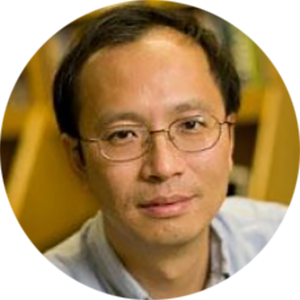
This week's Faculty Spotlight shines on Xiaoping Zhong, MD, PhD, associate professor of pediatrics in the Division of Allergy and Immunology and professor of immunology. Zhong talks to us about how he became fascinated by the complexity and importance of the immune system during medical school in China. He also shares his perceptions of the greatest current challenges and opportunities in the field of allergy and immunology and discusses his research focused on multiple topics in the immune system. He talks about his two greatest mentors—Gary Koretzky and Michael Krangel—as well as his passions outside of work.
How long have you been at Duke? How did you decide to come here?
I initially came to Duke in 1992 to pursue a PhD degree in immunology. After completing my post-doc training at the University of Pennsylvania, I returned to Duke in 2004 and have stayed here since then. I was drawn to Duke by its strong reputation for biomedical science and collaborative environment. Duke was the perfect place to pursue my research interests, and I have enjoyed working with the many friendly and talented colleagues here.
What are your current responsibilities in the Department of Pediatrics? What does your typical day look like?
I am a full professor in pediatrics and immunology, currently exploring mechanisms that regulate immune cell development and function and how dysfunction in immune cells can lead to autoimmune disease and immune deficiency. I spend most of my time in the lab developing research projects and training young scientists. I also work with physicians in our division to study human diseases.
How and when did you initially become interested in medicine? What made you decide to pursue a career in allergy and immunology in particular?
During my time in medical school in China, I was fascinated by the complexity and importance of the immune system. I decided to pursue this interest further by attending graduate school at Duke’s immunology program, studying T-cell development and the temporal and lineage specific control of T cell receptor gene recombination. My interest in T-cell biology was further developed during my postdoctoral training. After more than twenty years of exploration and making many discoveries, I am still fascinated by the vast complexity of the immune system and its intricate roles in health and diseases.
What do you see as the biggest current challenges and opportunities in the field of pediatric allergy and immunology?
Exciting progress has been made in understanding immune cell functions against pathogens and cancers. More recently studies have found that immune cells also play important roles in tissue development, homeostasis, function, and aging. It is difficult to say what the biggest challenges are, but I think a main challenge to the field is how to take an integrated view of cross-talks between different types of immune cells and between immune cells and non-immune cells in individual organs at both cellular and molecular levels under physiological and pathologic conditions. With advanced technologies, especially the high-throughput multi-omics technologies, and multi-discipline collaborations, we can achieve a much deeper and comprehensive understanding of the immune system, the interplay between immune cells and other cells, and disease pathogenesis to facilitate development of more targeted effective therapies for different diseases.
Can you tell us about the research you are currently involved in?
My lab has been working on multiple topics in the immune system. We are interested in how T-lymphocyte’s development, activation, and tolerance are controlled at the cellular and molecular level. We are also studying other immune cells such as B-lymphocytes, macrophages, and mast cells. We have been working on diacylglycerol kinases as well as mTOR and its tight regulation in various types of immune cells. One of the most exciting projects we are working on is developing mouse models to mimic human immune deficiencies and using these models to illustrate novel mechanisms in immune regulation.
What do you enjoy most about your work?
I most enjoy being able to work alongside talented scientists to learn new things everyday about our immune system. Every discovery is followed by many more questions.
Who was your most significant mentor and what knowledge did you gain through this collaboration?
I was fortunate to have worked with Dr. Michael Krangel during graduate training and Dr. Gary Koretzky during my post-doc training. Both taught me how to be a good scientist, colleague, and mentor.
What passions or hobbies do you have outside of Duke?
Outside of working at Duke, I enjoy hiking, traveling, playing badminton, and watching action movies with my family. We love going into nature and visiting national parks every summer.